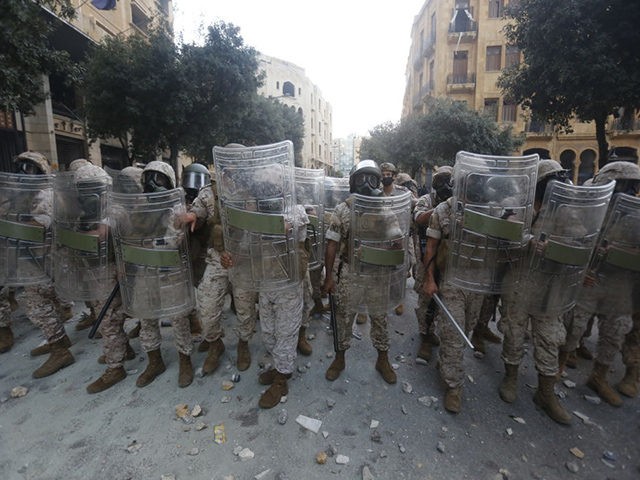Lebanon’s parliament approved a state of emergency Thursday granting sweeping powers to the army.
The emergency decree cites exceptional circumstances in the country following last week’s devastating port explosion in the capital, Beirut.
It further “allows the army to curb free speech, freedom of assembly, and freedom of the press, as well as to enter homes and arrest anyone deemed a security threat,” Al Jazeera reported.
On August 5, one day after the blast, Lebanon’s executive cabinet declared a two-week state of emergency, placing the military in control of security in the capital and ordering the army to place under house arrest anyone involved in storing the explosive material that detonated at the port. Lebanese authorities say the explosion was caused by a large cargo of ammonium nitrate — a chemical compound used as a fertilizer and to manufacture explosives — stored near the port for years under negligent conditions.
Eight days into the two-week state of emergency, Lebanon’s parliament Thursday voted for the new emergency declaration. Under the decree, military courts will now handle judicial proceedings in Lebanon. This has alarmed rights groups, such as Human Rights Watch, who say that the country’s military courts fail to conform to standards of due process.
Rights groups also fear the latest decree would allow state security forces to further crack down on citizens, many of whom have taken to the streets since the explosion to protest the government corruption and negligence they say led to the tragedy. Lebanese security forces were observed using excessive force to quell anti-government protests on Saturday, injuring 728 people, according to Al Jazeera.
In response to mounting public outrage, Lebanese Prime Minister Hassan Diab resigned Monday, along with his cabinet. Several ministers had already stepped down prior to Diab’s resignation, meaning Lebanon’s government has effectively folded.
For nearly seven years, Lebanon’s top security and political officials knew that the 2,750-ton cargo of highly combustible ammonium nitrate sat near the Port of Beirut but took no action to move it from the densely populated area. The explosion killed at least 200 people, injured another 6,000, and displaced hundreds of thousands more.

COMMENTS
Please let us know if you're having issues with commenting.